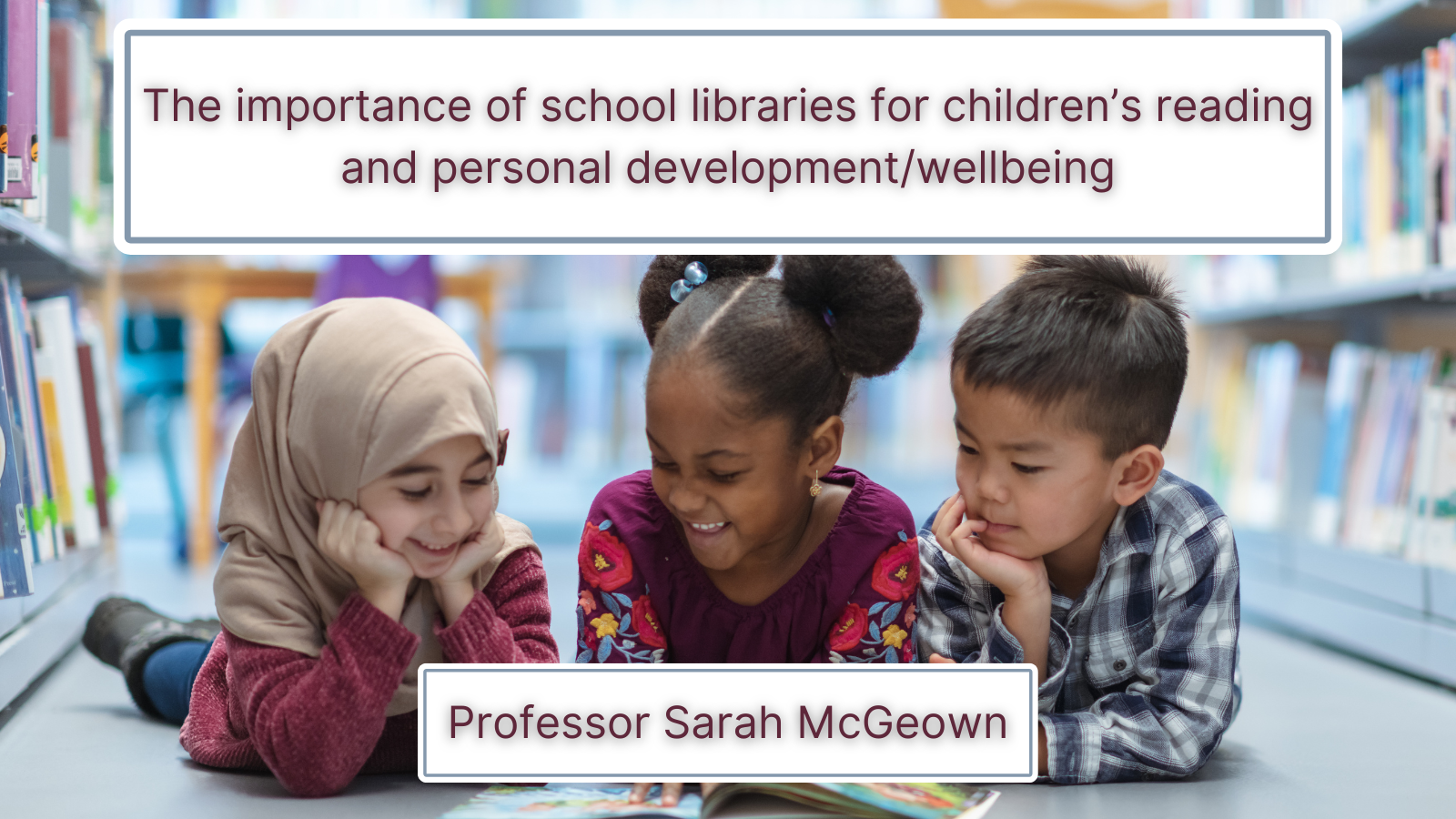Importance of school libraries and librarians for children’s reading and personal development
Category: Blog

Professor Sarah McGeown, Personal Chair, Literacy, and co-Deputy Director of Research, Knowledge Exchange and Impact / REF Engagement and Impact Lead at the University of Edinburgh
Fostering a love and interest in reading requires children and young people to have easy and regular access to quality books and other texts which reflect their interests, preferences, lives, experiences and abilities (McGeown & Wilkinson, 2021). Recent research demonstrates that declines in UK children and young people’s reading enjoyment and engagement have intensified over the last year (Clark et al., 2024). Therefore, collective urgent action is required to reverse this trajectory.
To date, a number of research studies have highlighted the importance of quantity and quality of books (Loh et al., 2017; 2022), quantity and quality of space (Loh, 2015; Loh et al., 2017; Merga, 2017), and expert (for example, librarian) knowledge and pedagogy (Merga, 2019a; 2019b; Merga & Roni, 2017; Merga 2021a) for children to experience positive personal and reading outcomes. In addition, school libraries are recognised as important and essential spaces to foster student belonging and sanctuary, providing opportunities for students to relax and recharge, as well as supporting social activities (Merga, 2020; 2021b).
Further, recent research has highlighted the important role played by school librarians in supporting pupils’ reading and personal development, for example, through cultivating a love of reading, supporting diverse reading activities, and ensuring book provision reflects the needs, interests, preferences and lives of the school community. Beyond reading, librarians also often play a unique role in supporting students’ personal development, for example, through supporting inclusivity, autonomy and future aspirations (Webber et al., 2024).
References
Clark, C., Picton, I., Cole, A., & Oram, N. (2024). Children and Young People’s Reading in 2024. National Literacy Trust Research Report. Available here: https://nlt.cdn.ngo/media/documents/Children_and_young_peoples_reading_in_2024_Report.pdf
McGeown, S., & Wilkinson, K. (2021). Inspiring and sustaining reading for pleasure in children and young people: A guide for teachers and school leaders. UKLA Minibook.
Loh, C. (2015). Building a Reading Culture in a Singapore School: Identifying Spaces for Change Through a Socio-spatial Approach. Changing English, 22(2), 209-221.
Loh, C. E., Ellis, M., Paculdar, A. A., & Wan, Z. H. (2017). Building a successful reading culture through the school library: A case study of a Singapore secondary school. IFLA Journal, 43(4), 335–347. https://doi.org/10.1177/0340035217732069
Merga, M. (2017) Meeting the Needs of Avid Book Readers: Access, Space, Concentration Support and Barrier Mitigation. Journal of Library Administration, 57(1), 49-68, DOI: 10.1080/01930826.2016.1185854
Merga, M. K. (2019a). How do librarians in schools support struggling readers? English in Education, 53(2), 145–160. https://doi.org/10.1080/04250494.2018.1558030
Merga, M. K. (2019b). Collaborating With Teacher Librarians to Support Adolescents’ Literacy and Literature Learning. Journal of Adolescent & Adult Literacy, 63(1), 65–72. https://doi.org/10.1002/jaal.958
Merga, M. K. (2020). How Can School Libraries Support Student Wellbeing? Evidence and Implications for Further Research. Journal of Library Administration, 60(6), 660–673. https://doi.org/10.1080/01930826.2020.1773718
Merga, M. K. (2021a). What is the literacy supportive role of the school librarian in the United Kingdom? Journal of Librarianship and Information Science, 53(4), 601–614. https://doi.org/10.1177/0961000620964569
Merga, M. K. (2021b). Libraries as Wellbeing Supportive Spaces in Contemporary Schools. Journal of Library Administration, 61(6), 659–675. https://doi.org/10.1080/01930826.2021.1947056
Webber, C., Bohan, K., Collins, C., Ewens, J., Wilkinson, K., & McGeown, S. (2024). Beyond books: High school librarians as champions of pupil inclusivity, autonomy, and reader development. Journal of Librarianship and Information Science, https://doi.org/10.1177/09610006241230101